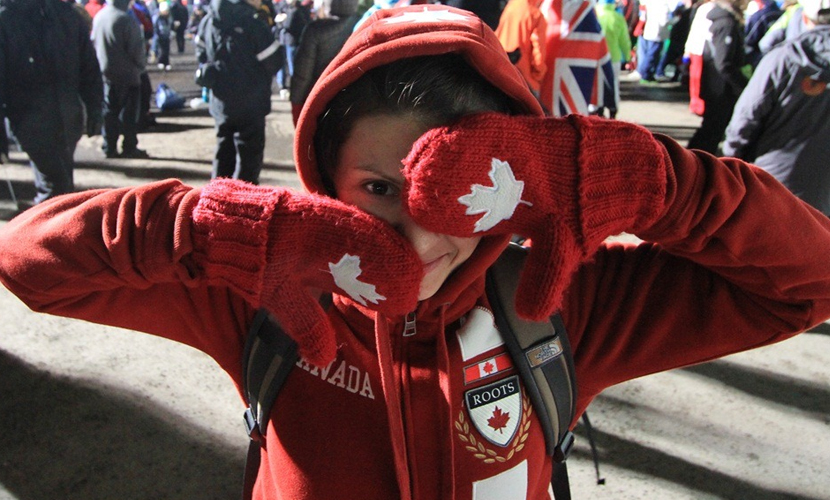One of the latest controversies to spin its web around the 2010 Olympics in Vancouver deals with sponsorship or better yet the lack thereof. Many large corporations have been selected to play and pay the part to be the financial backbone of these winter games; altogether forking over $750 million that goes directly towards the VANOC budget. The issue lies with the “me too” businesses who want to capitalize on the patriotism, tourism and increased spending that comes with hosting a sporting event such as this.
What Exactly is Ambush Marketing?
According to Wikipedia: “Ambush marketing is a marketing campaign that takes place around an event but does not involve payment of a sponsorship fee to the event. For most events of any significance, one brand will pay to become the exclusive and official sponsor of the event in a particular category or categories, and this exclusivity creates a problem for one or more other brands. Those other brands then find ways to promote themselves in connection with the same event, without paying the sponsorship fee and without breaking any laws.”
The Rules of the Game
After reading what it felt like volumes of what not to do I have summarized it all with one list. If you are not considered a sponsor then legally one must steer clear from depicting anything that resembles winter sport, competition or mentions any of the following terms (on their own as well as combined) such as:
- Olympic
- Podium
- Medal
- 2010
- Vancouver
- Winter Games
- Rings
- Inukshuks
The Chosen Team & Those Warming the Bench
At this point you might have to claim to be living under a rock if you did not know McDonalds, Coke and Hudson’s Bay Company had something to do with the Olympics. RBC or Royal Bank of Canada is also within the same league but it is truly those that were not picked to be with the “elite” that are the ones to watch for. These are the companies who don’t have a lot to loose if they can find a way around the tight restrictions set forth by VANOC; and they have. Roots, LuLu Lemon and Scotiabank are the three causing the most uproar with the two former launching their own clothing lines themed around a “certain” sporting competition that just so happens to be taking place in Bristish Columbia this winter. LuLu Lemon has even gone as far to name their line “Cool Sporting Event”; which cunningly omits all the terms (i.e. Vancouver, 2010, and Olympics) deemed unusable or treading on VANOC‘s turf. Scotiabank, in an effort to tag onto this new found love for Canada has also been tightrope walking VANOCs guidelines with their “Show Your Colours” campaign that conveniently runs the same dates as both the Olympic as well as Paralympic games. And despite the pleas from Vancouver’s governing Olympic body for these businesses to play “fair” it makes one wonder if is even fair to begin with.
Penalties (If Enforced)
At this stage in the game, almost halfway through the Olympics, both sides are pushing to see if one will make a move over the other. If found guilty of copyright infringement these businesses in question could be fined up to $1 million dollars and face a maximum 5 year prison term. The grey component with this is for VANOC to win the battle in court they must prove that the company (or individual charged) is creating a uncertainty among the public about who is an actual sponsor and who is not. And relying on the said public to agree one way or another is not something either party wants to bet on.
Player Backlash
Sponsors hate it because it creates confusion in the minds of consumers and worse yet choice.
Vanoc and the BC government see it as a direct hit to their profits. The Own the Podium group considers it to be their main source of non-government funded income so any reductions to this directly affects our athletes. Unchosen suppliers feel that it leaves the smaller businesses, who cannot afford to hand out $200 million to participate, left out in the cold. Media have taken the stance that strict standards set early were too tightly governed and essentially created this clash.
Spectators and Commentator Reaction
And the consumers? Well that is up for you to decide… does it matter that the sponsors determine what you can eat, drink and bank with for 16 days? Does it bother you if the big players like McDonalds or unheard-ofs like Olympic Pizza are making profits during the games? If given a selection of items could you tell those that have been given official licensing and those who have not? Do you think it is fair that Own the Podium gains financial backing but Right to Play does not?
But most of all do you care? This is the real question that everyone is afraid to ask because… consumers if you don’t, it makes this issue irrelevant and the idea of asking millions of dollars from a handful of sponsors ludicrous. Not to mention puts the pressure to fund these games back on the government and back on us. Or would it? One might think it would change the strategy of the game, the make-up of the teams and possibly the result.



